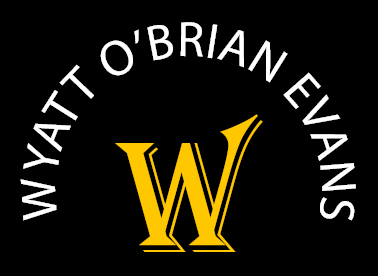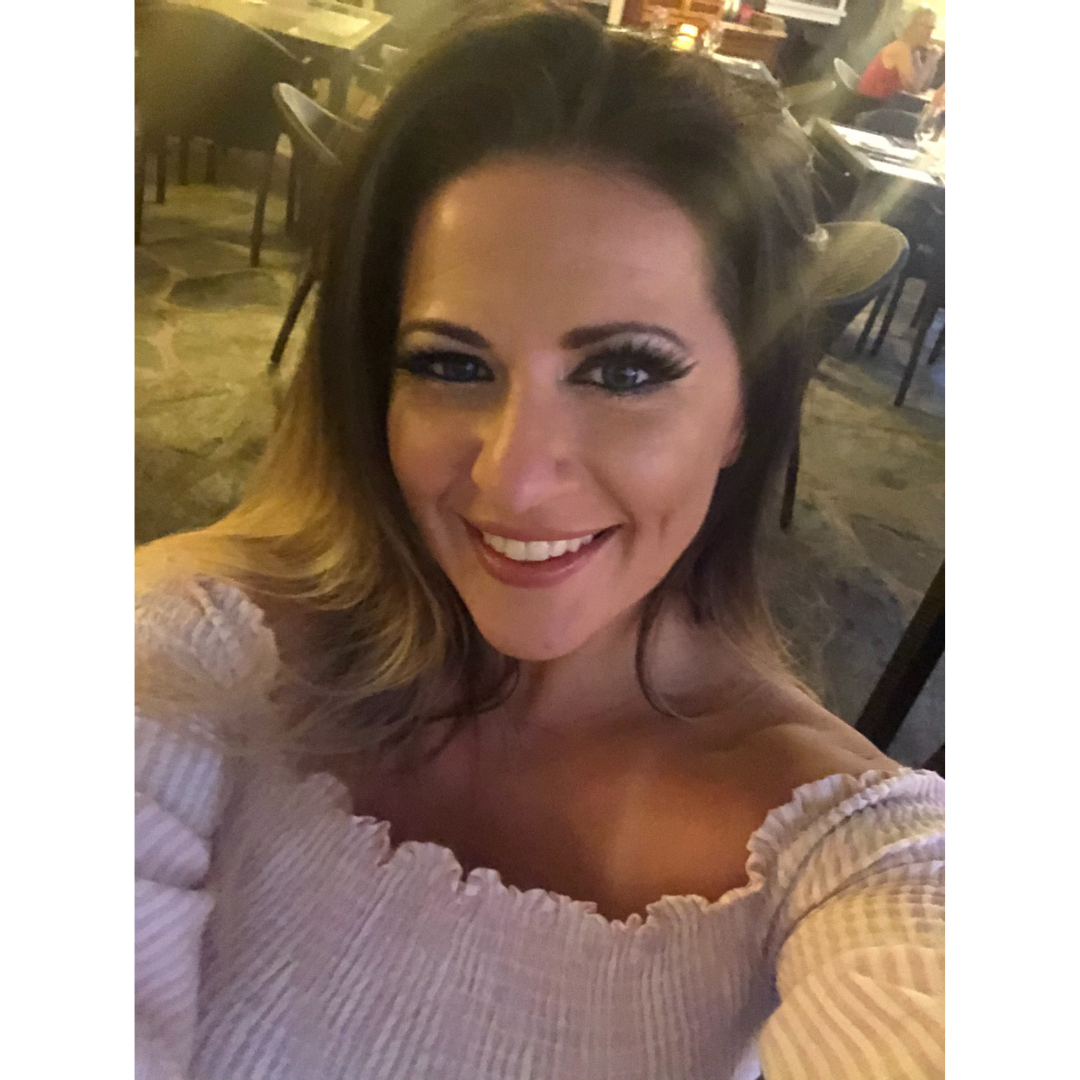I’ve got mad respect for Vong Show! Hailing from Canada, he’s an Asian stand-up comic whose star is shining quite brightly.
An integral stop on my eclectic journey as a talent makes me say that about Mr. Show. Allow me to explain.
Back in the day—the ‘90s to be exact—I, myself, was a stand-up. As mostly a regional talent (Eastern U.S.), I was workin’ the clubs with the indomitable Wanda Sykes. And when I participated in an HBO Talent Search, I chatted with Pauly Shore.
I had promise.
But because I was soooooo much in the closet (Actually, the door was locked and then triple deadbolted! Fo’ real.), I squandered that potential.
Why? Because I was acutely uncomfortable with being gay/SGL.
I just wasn’t being my authentic self.
And to be a successful, winning performer–particularly a comedian–you have to be in sync with each and every aspect of yourself. It is imperative that you be fully in touch with who you are… and then be free enough to NOT let what people think about you matter.
Now, check this out: although I had unresolved issues with my sexual orientation, I hungered to perform gay-centric material! What a helluva dichotom!! (Maybe I was ahead of my time?)
As a result, I became increasingly frustrated and was feeling emasculated.
So like a coward, I left the game.
Therefore, I truly admire Mr. Show because he’s an out and proud performer–and is doing exceptionally well in the game! And, Vong is much more than just a comic: he’s also a producer and humanitarian.
Recently, Wyattevans.com had an in-depth and fab-u-lous convo with Vong. So now, “let’s git ‘er done!”
WYATT: Mr. Vong Show, welcome to Wyattevans.com!
VONG: Thanks for having me, Wyatt!
WYATT: Before we jump into stuff, I wanna dissect your following statement, which I think is ab-so-lute-ly adorable: “I’m the “official spokesperson for gay, super-cute Asians.” What exactly does that mean? “Inquiring minds wanna know.”
VONG: The tagline originated when I began my career in Alberta, which is the most conservative province in Canada (kind of like our version of Texas, including oil and cowboy hats). I created the tagline because I had to introduce the fact that I was gay and then immediately win the audience back. So I would say “Official spokesperson for gay…” then they audience would GASP, and I’d continue “super cute Asians” and it would give them permission to laugh so we could move on with the rest of the show.
The tagline is also representative of my comedy style as I am trying to represent the stories of the people I grew up with, stories I don’t think have been told so I do want to be a spokesperson for those people as I don’t think their voices are represented in media.
WYATT: What type of comedy do you do? Anecdotal? Alternative? Blue? Character?
VONG: Storytelling as a narrative structure with classic standup structure for delivery (setup, punchline, tags). Definitely, character driven and ego-centric to my worldview and experiences.
https://youtu.be/4gOcM1s2k5s
WYATT: What are the demographics of your audience?
VONG: 40% Asian, 40% Other Minorities, 20% White. Even split 50/50 gay and straight. This changes if the show is targeting one of these groups particularly (RICE for Asians, FRUIT for LGBTQ+) but a general show of mine would have this breakdown.
WYATT: You’ve organized and hosted the very first Canadian comedy show featuring all-East Asians, called RICE. Why did you feed the need to do that? How did you do it?
VONG: I’ve been doing comedy for 15 years and this is honestly the first time where I could say that the four best comedians in Toronto were all Asian. I thought we need to do something special together before they all get famous and move away. When else would we have this concentration of Asian talent in one city? I knew this was our moment and we should do something special.
WYATT: Is RICE monthly?
VONG: RICE occurs three times a year. January (Chinese New Year), May (Asian Heritage Month) and September.
WYATT: What was it like doing MTV Logo Network’s “One Night Stand Up?”
VONG: It was AMAZING! Such a long time ago but still remember every detail. Filmed live at San Francisco’s Great American Music Hall, such an iconic venue. Really learned a lot about filming and how production works.
WYATT: You performed during the closing ceremonies of the inaugural North American Outgames, a multi-sport event held every three years by the Gay and Lesbian International Sport Association for LGBTQ athletes in North America. Tell us about that.
VONG: It was an amazing experience. I opened for Lily Tomlin, which was a great honour. Largest show I’ve ever performed at, as the venue held around 3000 people.
WYATT: Vong, let’s travel back…back…to your roots: where were you born and raised?
VONG: Born on the border of Laos and Thailand, as my parents were escaping communism (my mom was pregnant as they escaped). Raised in Winnipeg.
WYATT: Parents, siblings?
VONG: Both parents still live in Winnipeg along with my three sisters and one brother.
WYATT: Are you the oldest, youngest, in the middle?
VONG: Youngest.
WYATT: What three characteristics describe you as a child.
VONG: Smart. Hyper. Sensitive.
WYATT: When did you first realize that you were gay?
VONG: Pretty early on in life. Had a crush on an elementary school teacher.
WYATT: About your coming out process: was it difficult? Complicated? Fraught and full of angst? And why?
VONG: Complicated! I was ready to come out early in high school but was with a boyfriend who was in the closet and he asked me to stay in the closet for him. So, I didn’t come out until University which pretty much ended the relationship.
WYATT: How did your family react?
VONG: Silence for about a month. Then drove me to the Pride parade as a show of support. Culturally things aren’t verbalized so that was a really big gesture. They’ve been supportive ever since.
WYATT: What was crushing on that first guy like? What feelings ran through you?
VONG: Realizing that when you take societal pressures and religion out of it, that you know whether you’re attracted to someone. That was my truth and no one could take that away from me.
WYATT: You got your comedy start as an engineering student when you worked part-time writing the obit section for the Calgary Herald? Please expound.
VONG: Definitely writing obituaries gave me a lot of material, which I still perform to this day. Engineering was interesting because it helped me realize that I had a different perspective from my peers.
WYATT: When did you first say to yourself, “Hey! I am funny! I can do this?”
VONG: I’ve been telling stories since I was very young. It really didn’t take much translation from stories I’d tell at parties, to going up on stage.
WYATT: I assume that you “dipped your toe in the comedy water” by performing at open mics?
VONG: Yeah, I was really fortunate. Calgary has a great open mic called Comedy Monday Night where I found a lot of support and a great place to learn the craft.
WYATT: Vong, let’s talk about that very first stand-up experience. How did you feel right before you took the stage: what emotions were running through you? Were you, like, scared shitless? That’s how I felt my first time up on stage.
VONG: Definitely nervous and excited at the same time. Spent the entire time fidgeting with the microphone cord. Still kinda painful to watch the video it’s so awkward, but the material was there from the beginning.
WYATT: And how did you feel afterwards?
VONG: Proud that I took that leap.
WYATT: Lessons learned?
VONG: That comedy is universal and that when I take the messages I’m trying to convey and use comedy, it’ll translate better to more people.
WYATT: Nice! Now, in Alberta, is it accurate that you began to incorporate your comedy on stage at human rights conferences you organized?
VONG: Probably more the reverse. I incorporated my human rights messaging into my comedy to reach a broader audience.
WYATT: You’ve stated that you were the only non-white comedian and the only gay comedian in Alberta when you started performing, and you toured small towns. Exactly what was that like?
VONG: To be honest, it was pretty bananas! I was once booked for an oilfield workers retirement party that did not go well at all. But in general, I found that humor across Alberta was exactly the same no matter the size of the city, which made it not too difficult to adapt.
WYATT: Let’s dive into the nuts and bolts of stand-up. First, how do you prep for a show? What type of/how much work and effort goes into delivering a winning performance?
VONG: I’m pretty hardcore with my preparation. I write out word-for-word my script to eliminate difficult words, as I grew up with an intense stutter that still makes certain words difficult to pronounce. Then I do a lot of vocal warm-ups, almost like a musician as certain punchlines I deliver in falsetto and some in a deeper tone, so there’s definitely a performance aspect to the delivery.
WYATT: Every comedian has bombed, one time or another. Tell us about your most notable bomb–and why it happened.
VONG: First moving to Toronto I didn’t understand how people viewed Asians. Where I was from, Asians were mainly war refugees so we were looked down upon, seen as delinquents and gang members, so I wrote from that perspective. But the first image of an Asian Torontonians think of is of a rich Asian kid whose parents sent him here to better his life but who has no supervision. It wasn’t connecting at all, and it took me a few months to figure out what wasn’t working.
WYATT: It’s been said that when a stand-up comic has the audience in the palm of his/her hand, that it can be better than an orgasm! Tell us about one of your best performances.
VONG: I’d say when I headline one of my own shows (I normally just host). It’s nice because people have come to see you and know your material so you can really explore deeper the topics when people know what they’ve signed up for beforehand.
WYATT: Just how competitive is the stand-up business? Some have said it can be cutthroat.
VONG: I don’t find it competitive, to be honest. Because my success isn’t dependent on any other comedian’s journey. It’s about how many audience members I can reach out to and grow my following. And that doesn’t really factor into other comedians too much so I’m kinda just running in my own lane at that moment.
WYATT: Comics are on the road constantly—here, there, everywhere. Almost like being a nomad. How do you balance the professional and the personal?
VONG: It’s a bit easier for me as I’m working toward building my base in Toronto and only spend about three months on the road per year. Eventually, that’ll be 6 months on the road and 6 months at home. But with a city as large and diverse as Toronto (5+ million), it doesn’t make as much sense to be on the road when there’s so many people in this town to try to market to first.
WYATT: Vong, what performers have been your greatest influences—and why.
VONG: Chris Rock, Roseanne, Louie Anderson, Margaret Cho. Ego-centric character-driven storytellers focused on projecting their worldview, which is the lane I’m in.
WYATT: You’ve been in the game as a professional comedian for nearly two decades now. How has the comedy landscape changed since you began in 2010?
VONG: Definitely more diversity in the performers and also in the audiences. So many great independent shows have popped up that have cultivated new audience.
WYATT: Are there any unique challenges being an out gay comic? Backlash?
VONG: Yeah, definitely. More so, when I was in Alberta and being gay, might lose the whole audience before you even start telling jokes. Toronto it’s definitely less of an issue.
WYATT: Vong, I applaud you for giving back to the community. What was your inspiration, your impetus to found Comedy Cares, a non-profit partnering comedians and charities to raise funds for worthy causes?
VONG: Comedy’s just such a great way to raise awareness (and money) for worthy causes, so it was an easy decision to go in that direction.
WYATT: With which media organizations has Comedy Cares partnered?
VONG: National Post / Postmedia (formerly Canwest), AOL Canada, Metroland.
WYATT: Tell us about some of the successes of Comedy Cares.
VONG: Certainly! Well, we raised over $100,000 for various causes over the past seven years.
WYATT: That’s quite an accomplishment! Vong, do you have any advice for aspiring stand-up comedians who want to make it in the business?
VONG: Definitely model your career more after musicians than standard comedians. Don’t wait for someone to “discover” you and make you famous. Go build an audience who will follow you anywhere.
WYATT: My brutha, I think you’re hilarious, topical and clever as all get out! But for those who haven’t experienced you–why should they? What separates Mr. Vong Show from the rest of the pack?
VONG: Thanks, Wyatt. I think I bring a different perspective. I’m not trying to relate to you because I think we’re the same. I actually more try to shine a light on how different we are and hopefully you find that interesting enough to want to learn more about my journey.
WYATT: What’s on tap for Vong Show for the rest of the year?
VONG: Prepping the ensemble concert film RICE we shot in January for distribution. Then working on my solo concert film special to be taped in 2021 titled GAYSIAN.
WYATT: Yowza! Much success—especially on the concert film. So Vong, how can folks connect with and follow you?
VONG: My handle on all social media is @vongshow (IG, Twitter, Facebook, YouTube) and my website is www.vongshow.com.
WYATT: Mr. Vong Show, thanks so much for stopping by at Wyattevans.com!
VONG: It was my pleasure, Wyatt!
Vong’s Social Info
Website: https://www.vongshow.com
Facebook: https://www.facebook.com/vongshow [@vongshow]
Twitter: https://www.twitter.com/vongshow [@vongshow]
Instagram: https://www.instagram.com/vongshow [@vongshow]
YouTube: https://www.youtube.com/vongshow
https://www.youtube.com/watch?v=6BbgIT2CRC4
(YO! To Note: It looks like the spirit has moved Yours Truly to renter the game! Details in the months to come…)





Leave A Comment